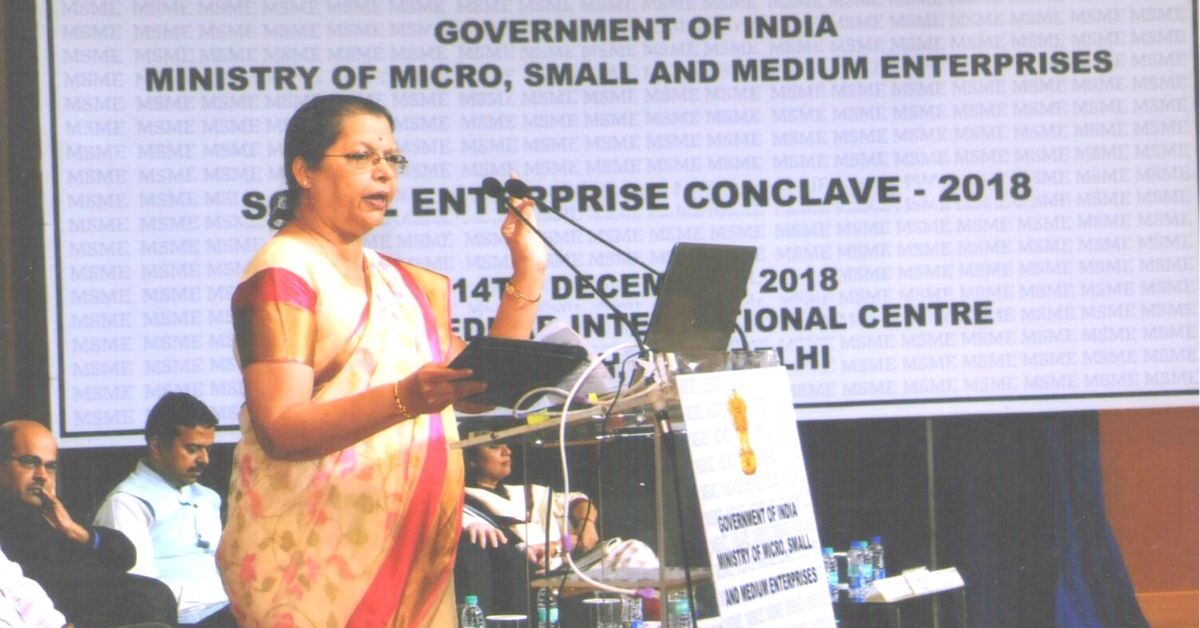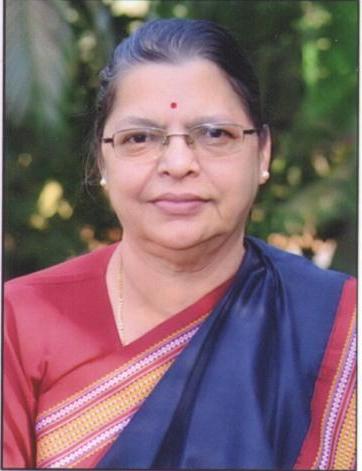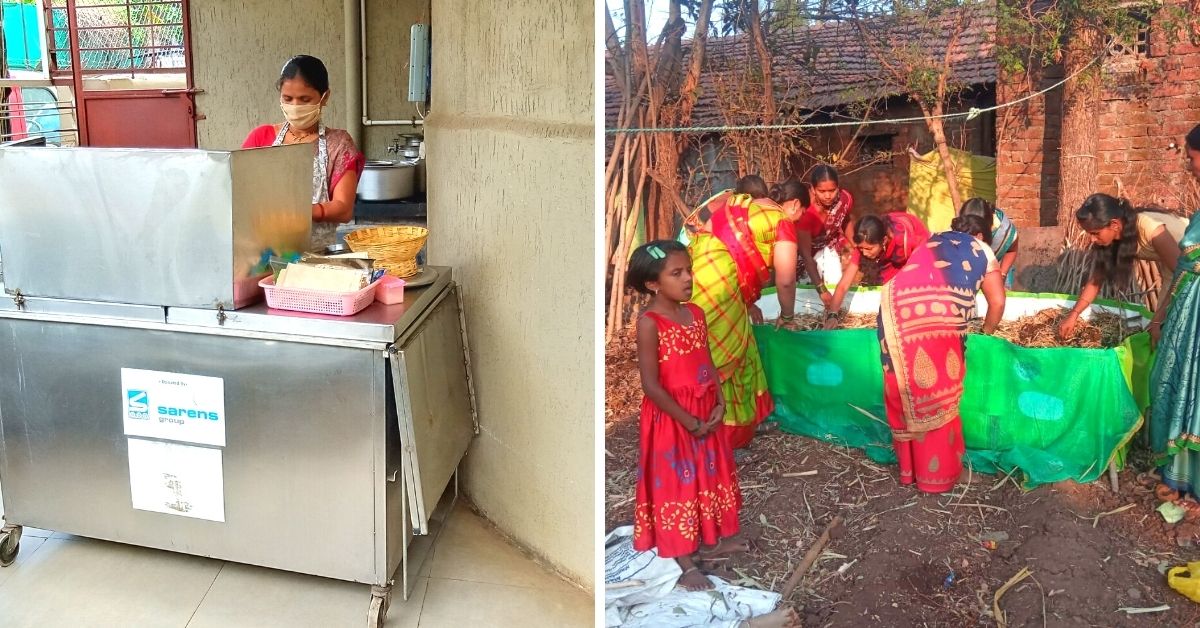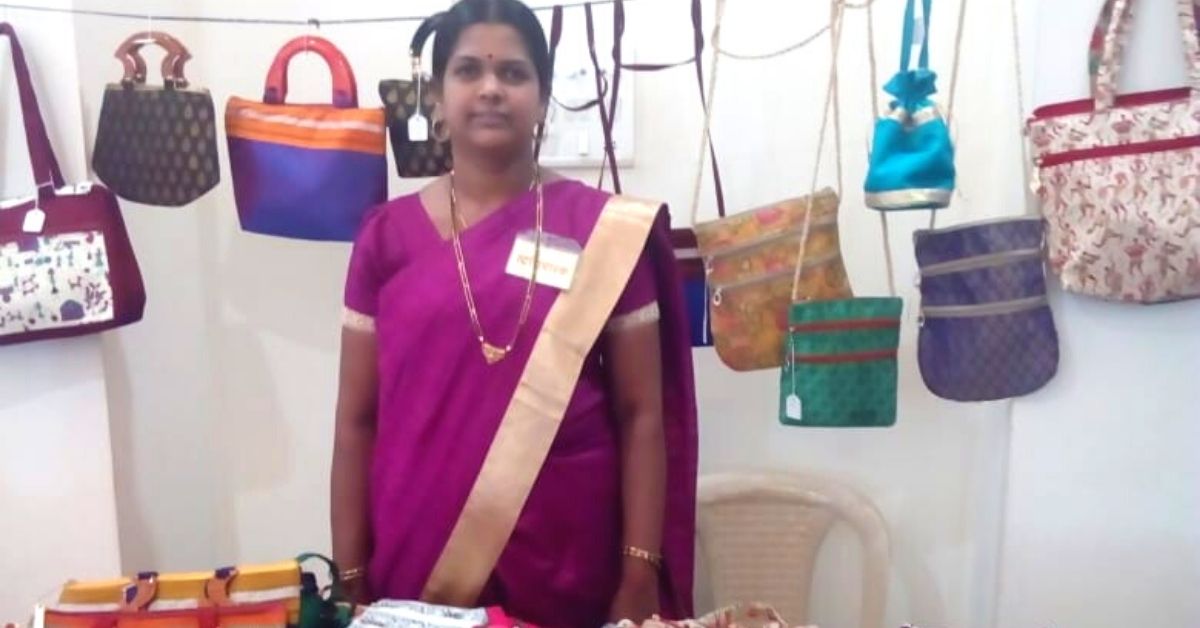Tailor’s Daughter Leaves Bank Job, Turns 6500 Maharashtra Women Into Entrepreneurs
70-year-old Kanchan Parulekar helms Swayamsiddha, a Kolhapur-based organisation that, in the last 28 years, has worked to create women entrepreneurs. The businesses range from bakeries to food processing units, bag manufacturing units, beauty parlours and handicrafts.

For Kanchan Parulekar (70), leaving her cushiony banking job at the peak of her career was a matter of principle. While she grew up amid poverty and strived hard to build a staggering career graph — from being a teacher to becoming a bank manager — she never parted ways with her childhood dream of wanting to make a difference.
Her goal had always been to uplift women from marginal backgrounds, by making them micro-entrepreneurs. For a child to dream this big is quite unheard of, but for Kanchan, who is from Kolhapur, this was nothing new — both her parents were actively engaged in social reforms during the 1950s and 60s.
Her mother was a tailor, and her father a social activist who fought for basic rights like education, water and health across Maharashtra. No members of the family held any degrees, and yet, were way ahead of their times. Kanchan took after her parents, and delivered her first ever public speech on health at only 11 years old.

Surprised and impressed by the young child’s moving appeal, Dr V T Patil, an eminent social worker and educationist, adopted her and decided to take care of her education. After Patil passed away, Kanchan decided to carry his legacy forward. She helped his organisation, Swayamsiddha, which works to create women entrepreneurs, grow further.
In the last 28 years, she has helped 6,500 women start their own businesses.
A need for concrete transformation
Kanchan’s drive to better the lives of those around her came from her own experiences. She says that one day, her younger sister was sent home from the clinic with a plaster after she complained of pain in her legs. A few days later, she was diagnosed with polio. This was Kanchan’s first brush with medical negligence. But it wasn’t the only issue prevalent in her area. She grew up seeing pressing problems like water scarcity and illiteracy all around her. It didn’t take her too long to connect them to one issue — poverty.
“Marginalised communities often find it difficult to access basic facilities due to poverty. I saw my parents work hard to bring the government’s attention to this, and bring in policy changes for years. I, too, wanted to help bring concrete transformation. I have used second-hand books and clothes all my life, so I knew the importance of money,” she tells The Better India.
Alongside attending meetings and rallies with her parents, Kanchan completed her Masters in Arts, and earned a Diploma in Education. She worked for a teacher for ten years, but later switched to banking, wanting better opportunities for herself. She spent the next 14 years working her way up, and became the bank manager.
Kanchan actively participated in sustainable livelihood and development projects organised by the bank across rural areas of Maharashtra. But still striving to extend her reach to the marginalised community, she left her illustrious career in 1992 to fulfil her goal of serving people with low incomes and no jobs. The same year, she came back to Swayamsiddha.
Swaymprerika

Delving into the work that the organisation does, she says it has two divisions, rural and urban. While women in the city area have to pay a fee for skill development training, the ones in rural areas are taught for free.
Kanchan started by posting an advertisement in the newspaper, inviting women, especially homemakers, for a meeting titled ‘Economic Empowerment’. More than 130 women turned up. Kanchan asked them about their interests, which lay in various fields.
“From food to handicrafts, they had several ideas to open their own businesses. They had the passion, and we provided the necessary training. A year later, we implemented similar skill development programmes in rural areas, but told them that they could take the classes at no cost. We customised the programme for villages in Kolhapur district by adding sessions on poultry farming, beekeeping, organic farming and other such agro-based skills,” Kanchan says. Besides training, the organisation also helps women with financial credit, access loans and investment opportunities.
“The businesses range from bakeries to food processing units, bag manufacturing units, beauty parlours and handicrafts. We provide the women with training, and once they establish their own firm, we market their products. The annual turnover of last year from all the businesses was a total of Rs 3.5 crore,” Kanchan adds.
Since a majority of the women had no prior experience of running a venture, Swayamsiddha set up Swaymprerika (self-motivated), a cooperative industrial society, to sell products in weekly bazaars, exhibitions and their offline store.
Carving their own identities
Swayamsiddha has helped many women turn their lives around.
Shakuntala Aundhkar, a resident of Barshi village in Marathwada region, migrated to Kolhapur in search of better opportunities. She used to be a potter, but drought conditions had killed her business. In Kolhapur, she took up odd jobs, like cooking and cleaning, to make ends meet and feed her three children. Her monthly earnings stood at Rs 350.
In 2017, she learnt about Swayamsiddha and enrolled in the training programme. “I improved my culinary skills and opened Shaku’s Kitchen to sell home-made food. Today, I earn up to Rs 60,000 every month,” Shakuntala tells The Better India.
Like Shakuntala, Ranjana Lavate, too, started her entrepreneurial journey after hitting rock bottom. She failed her Class X examinations in 1999, and had to face ridicule from everyone around her. She says her spirits were crushed, and for the longest time, she refused to step outside her house. The 35-year-old says she regained her confidence through various courses like personality development, cooking and learning the English language at Swayamsiddha.

“I started stitching purses and bags with an initial investment of Rs 250. At the organisation’s exhibition, I was able to sell a dozen bags for Rs 1,000. This minor success pushed me to scale my work, and today I earn around Rs 20,000 per month,” Ranjana says.
Several women like Ranjana and Shakuntala have been able to leave their struggles behind and venture into newer and more hopeful territories. Besides attaining financial freedom, these women have carved their own identities.
For the women who come to Swayamsiddha, inhibitions are a thing of the past. These women have broken several gender-based stereotypes and overcome many other challenges through sheer hard work and grit. Without the help of any publicity, they have been able to make sales worth Rs 25 lakh during the organisation’s four-day exhibitions.
“I swell with pride every time a woman decides to make herself self-reliant,” Kanchan says.
Edited by Divya Sethu
Get in touch with Swayamdidha here
If you found our stories insightful, informative, or even just enjoyable, we invite you to consider making a voluntary payment to support the work we do at The Better India. Your contribution helps us continue producing quality content that educates, inspires, and drives positive change.
Choose one of the payment options below for your contribution-
By paying for the stories you value, you directly contribute to sustaining our efforts focused on making a difference in the world. Together, let’s ensure that impactful stories continue to be told and shared, enriching lives and communities alike.
Thank you for your support. Here are some frequently asked questions you might find helpful to know why you are contributing?


This story made me
-
97
-
121
-
89
-
167











